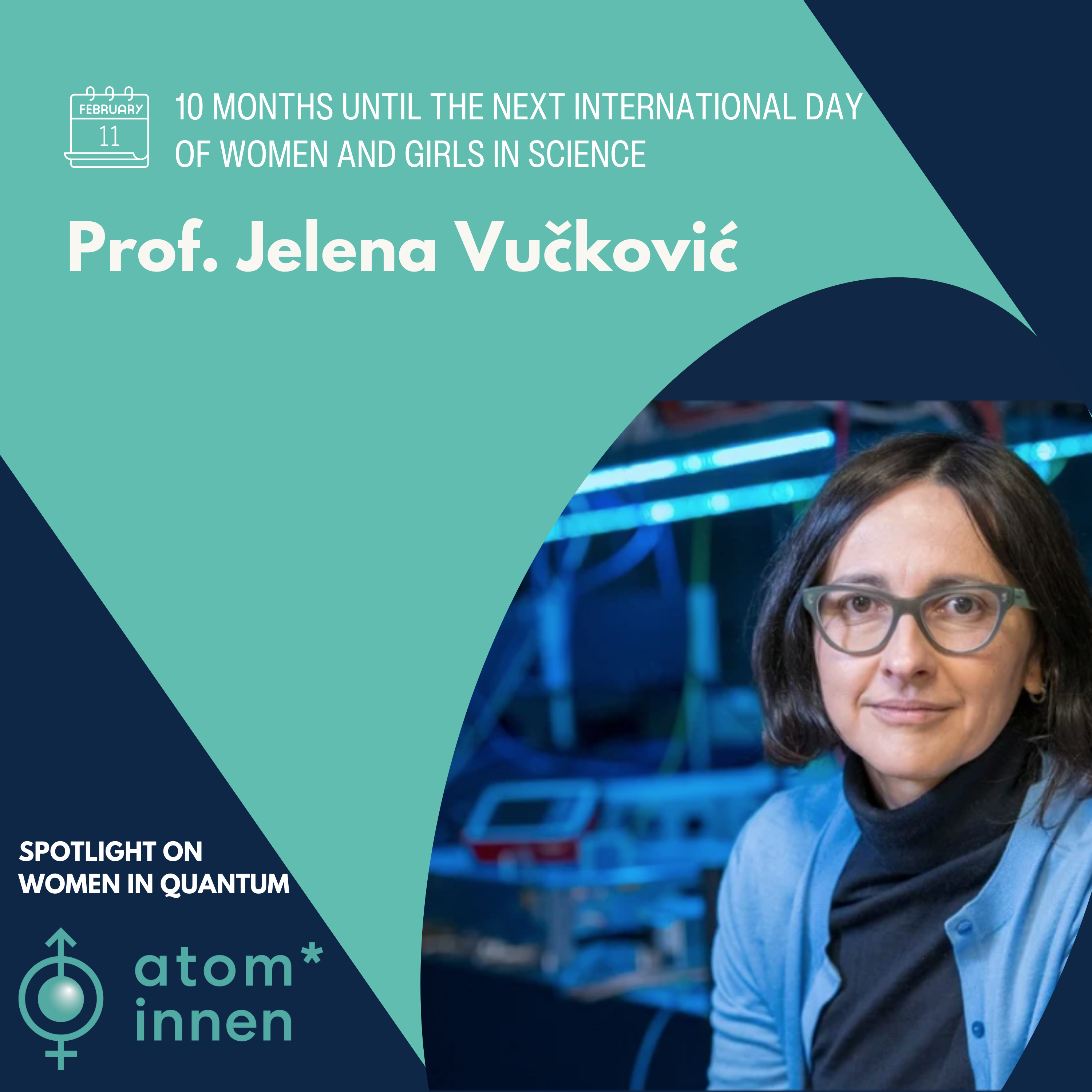Feeling like child in a sandbox: Jelena Vučković, physicist in experimental quantum optics and photonics, Stanford University

Angélique Sanchez, from atom*innen, welcomes Jelena Vučković
Hi Jelena, nice to meet you. Could you introduce yourself?
I’m Jelena Vučković. I’ve been at Stanford for almost 22 years, after completing a one-year postdoc there. Before that, I completed my PhD at Caltech. I was born in Serbia, where I also began my studies. My field is experimental quantum optics and photonics.
Coming from a family with diverse interests—my father in history and philosophy, my mother in business, and my brother as an engineer—I developed a broad perspective that extends to a love for art and music.
Why did you choose physics?
I started out with math but wanted something that connected more to the real world, which led me to physics. I attended a specialized high school that focused on math and physics and even joined the Serbian physics team. Later, I studied electrical engineering, programming, and applied physics, which offered more career options and practical opportunities.
Originally, I didn’t think of becoming a scientist or teaching. But when I graduated from college and chose quantum optics for graduate school, I felt like a child in a sandbox. That sense of excitement made me decide to pursue a career as a scientist.
What can be a challenge in your job?
One of the great things about this job is the flexibility—you get to choose your own projects, team, and experiments. However, the challenge comes when you realize that beyond being a scientist, you have to manage a team and mentor others. You’re almost like a psychologist, helping young people navigate big challenges in their lives, which is something we are not trained for. But it’s a rewarding challenge because you get to have a real impact on people’s lives.
What would be your advice for the next generation who wants to follow your path?
My advice would be to choose what you want to do. As a kid, I wanted to be an architect; I loved playing with Lego. Then, at the last moment, I chose physics and electrical engineering. You also may not see the real beauty of research as an undergraduate, so sometimes it’s good to explore.
Would you like to share your thoughts about being a woman in physics?
I only became of the gender imbalance after moving to the U.S. In Serbia in the 1990s, physics was equally split between men and women - I would say 50/50 when I was in high school and college. But in the U.S., we were only about 10 women in my class. It surprised me. Growing up, I was never given the feeling that 'physics is not for women'. That certainly gave me confidence. I was lucky to have a supportive family. My older brother, who’s seven years ahead of me, had a technical career and liked physics. He was a role model for me. Good teachers are also crucial—I was lucky to have an amazing physics teacher in 6 grade.
Later, when I had children, I faced a new set of challenges. Science doesn’t stop when you have kids, and I was the first woman in my department to have a baby. There was no policy in place for maternity leave at the time. You can’t just disappear in science, so I had to juggle everything and learn to prioritize along the way.
Thank you :)
Learn more about Jelena Vučković's work
Author: Angélique Sanchez
Date published: 2024-09-18

